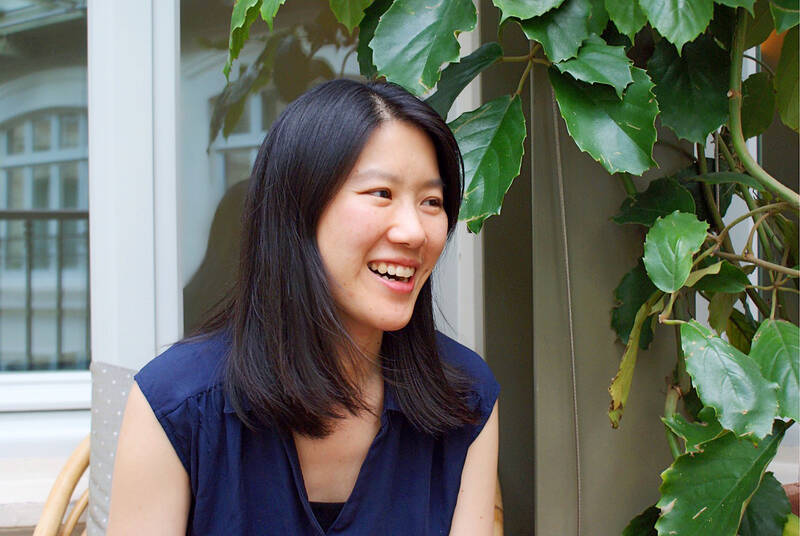Author and academic Michelle Kuo will give a lecture on Dec. 8 titled Solidarity with People Behind the Bars.
Kuo, an accomplished lawyer and writer, and fervent advocate for prison education, will draw on her extensive experience to discuss incarceration throughout the globe.
The lecture, which is part of the Lung Yingtai Cultural Foundation’s (龍應台文化基金會) Taipei Salon (台北沙龍) lecture series, will be moderated by Ko Pei-ru (柯沛如), the founder of Food Culture Collective.

Photo courtesy of the Lung Yingtai Foundation
With over 11 million people incarcerated worldwide today, the event will examine crucial questions surrounding their lives and the motivations behind punitive measures.
The conversation will explore the complexities of freedom, justice, systemic challenges and offer diverse perspectives on incarceration from both societal and prisoner viewpoints.
Kuo, currently a visiting associate professor at both National Taiwan University and National Chengchi University, gained acclaim for her 2017 memoir, Reading with Patrick (陪你讀下去). The poignant account reflects on her experiences teaching reading in a rural county jail in the US state of Arkansas, posing profound questions about societal obligations. The narrative underscores the profound impact of economic and racial inequality on life outcomes.
The salon is free, but those wanting to attend must pre-register.
To register for the in-person discussion (until Dec. 7), visit: www.surveycake.com/s/MOnbl
The talk will also be screened live on Facebook. To register, go to: fb.me/e/3nktpt7g8
■ 207, Sec 1, Dihua St, Taipei City (台北市大同區迪化街一段207號)
■ Dec. 8 from 7:30pm to 9pm. The lecture will be held in English.

On April 26, The Lancet published a letter from two doctors at Taichung-based China Medical University Hospital (CMUH) warning that “Taiwan’s Health Care System is on the Brink of Collapse.” The authors said that “Years of policy inaction and mismanagement of resources have led to the National Health Insurance system operating under unsustainable conditions.” The pushback was immediate. Errors in the paper were quickly identified and publicized, to discredit the authors (the hospital apologized). CNA reported that CMUH said the letter described Taiwan in 2021 as having 62 nurses per 10,000 people, when the correct number was 78 nurses per 10,000

As we live longer, our risk of cognitive impairment is increasing. How can we delay the onset of symptoms? Do we have to give up every indulgence or can small changes make a difference? We asked neurologists for tips on how to keep our brains healthy for life. TAKE CARE OF YOUR HEALTH “All of the sensible things that apply to bodily health apply to brain health,” says Suzanne O’Sullivan, a consultant in neurology at the National Hospital for Neurology and Neurosurgery in London, and the author of The Age of Diagnosis. “When you’re 20, you can get away with absolute

May 5 to May 11 What started out as friction between Taiwanese students at Taichung First High School and a Japanese head cook escalated dramatically over the first two weeks of May 1927. It began on April 30 when the cook’s wife knew that lotus starch used in that night’s dinner had rat feces in it, but failed to inform staff until the meal was already prepared. The students believed that her silence was intentional, and filed a complaint. The school’s Japanese administrators sided with the cook’s family, dismissing the students as troublemakers and clamping down on their freedoms — with

As Donald Trump’s executive order in March led to the shuttering of Voice of America (VOA) — the global broadcaster whose roots date back to the fight against Nazi propaganda — he quickly attracted support from figures not used to aligning themselves with any US administration. Trump had ordered the US Agency for Global Media, the federal agency that funds VOA and other groups promoting independent journalism overseas, to be “eliminated to the maximum extent consistent with applicable law.” The decision suddenly halted programming in 49 languages to more than 425 million people. In Moscow, Margarita Simonyan, the hardline editor-in-chief of the